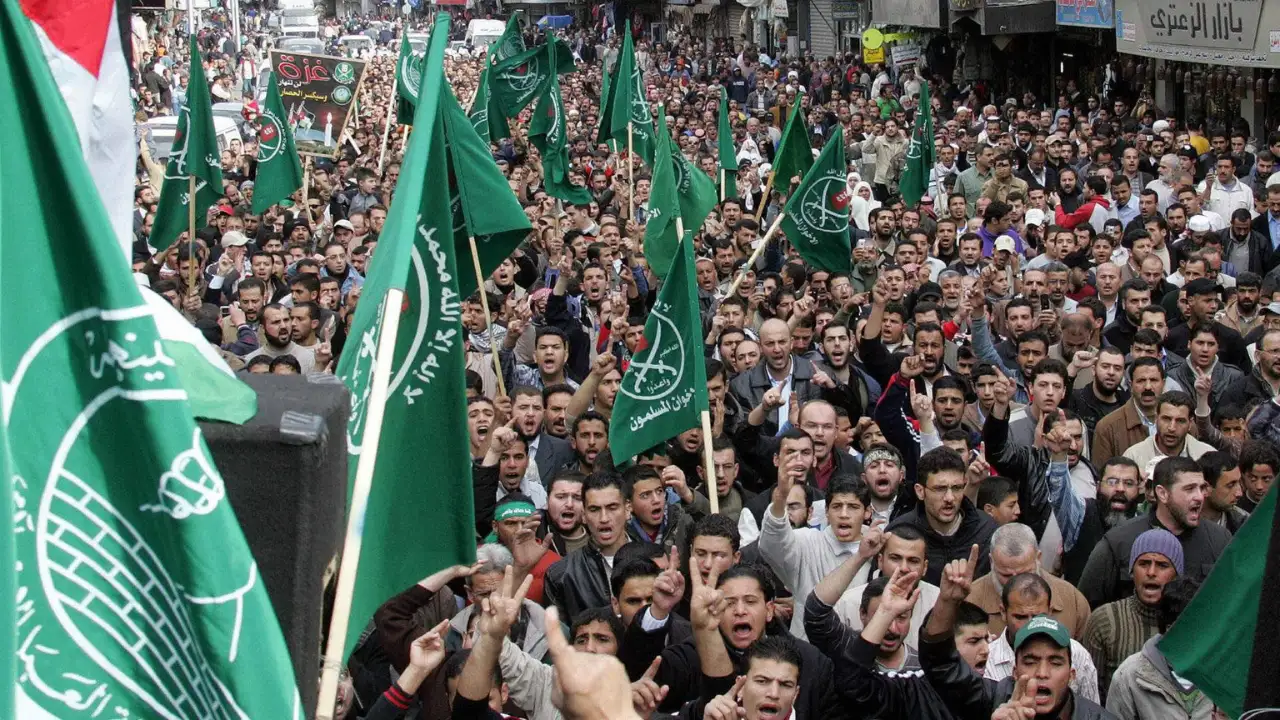In a recent in-depth analysis, political researcher Ahmad Shaarawi, a research analyst at the Foundation for Defense of Democracies (FDD), stated that the Jordanian government’s decision to ban the Muslim Brotherhood marks a strategic turning point in the state’s relationship with the group, which had long been considered part of the Jordanian political landscape.
Shaarawi noted that Jordan’s Interior Minister Mazen Al-Faraya declared explicitly: “The Muslim Brotherhood and all its activities are banned,” describing this move as the collapse of Amman’s long-held “containment” strategy toward the Brotherhood—especially since their opposition to the peace treaty with Israel in 1994 and their heightened rhetoric during the Arab Spring.
According to the report, which cited official security sources, Jordan’s General Intelligence Directorate uncovered a terrorist cell linked to the Brotherhood that had been plotting to target sensitive sites within Jordan using rockets and drones. Sixteen operatives were arrested, some of whom admitted to direct affiliation with the Brotherhood and receiving financial support from leaders based in Lebanon.
Shaarawi highlighted that investigations revealed a direct $20,000 transfer from a Brotherhood leader in Lebanon to fund missile production. One cell member confessed to being responsible for recruiting new Brotherhood members among fresh military conscripts.
Legal Ban vs. Political Presence
Shaarawi pointed out that the ban does not currently extend to the Brotherhood’s political arm, the Islamic Action Front (IAF), which secured 31 seats in the 2024 parliamentary elections—more than any other party. However, the IAF is deeply intertwined with the Brotherhood in terms of funding, leadership, and organizational structure.
He warned that this legal distinction could undermine the IAF’s electoral base and may eventually lead to its own prohibition unless a separate ruling is issued by Jordan’s Independent Election Commission.
Warning Against Escalation: Security Cooperation Is Key
In conclusion, Shaarawi urged the United States to enhance intelligence cooperation between Jordan, the Gulf States, and Israel to prevent the Brotherhood from reorganizing in a more clandestine and radical form—similar to developments in Egypt during the 1990s, when a ban led to a wave of terrorist operations.
He added that allowing the group to persist under a political umbrella, despite links to terrorist activities, poses a serious threat to regional security and demands greater coordination in security policy among allies.
For its part, the Secretary-General of the Islamic Action Front, Wael Al-Saqqa, stated that the party is an independent political entity and “has no affiliation with any other organizational body,” adding, “We have always declared our commitment to the system, the law, and the constitution.”
In 2020, Jordan’s Supreme Court ordered the dissolution of the Muslim Brotherhood for failing to regularize its legal status. Nevertheless, the group continued its political and social activities, with the IAF participating in last year’s elections and securing 31 out of 138 parliamentary seats.
Founded in Egypt nearly 100 years ago, the Muslim Brotherhood has local branches across the world. Its stated goal is to establish a state governed by Islamic law. It is banned in Egypt and many other Arab countries, where governments consider it a threat.


